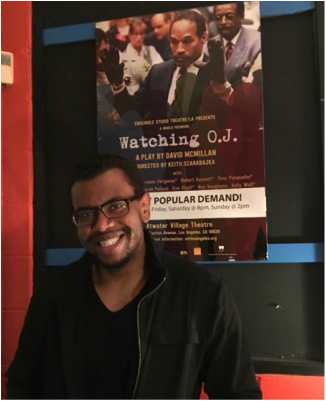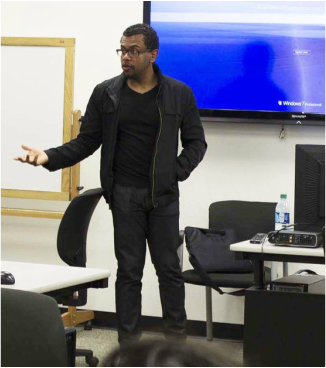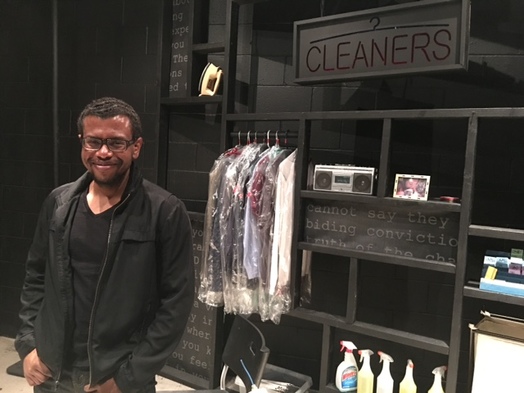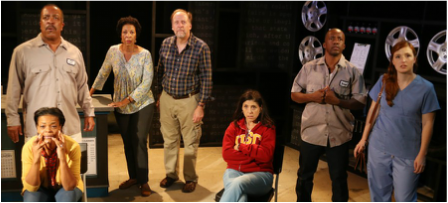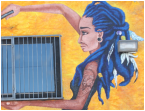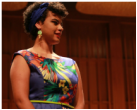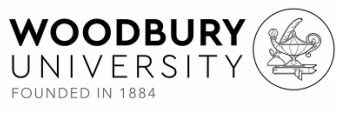- About Us
- Features
- Archive
- Videos
- The Secret success of Elmer Street
- Flying High From Below: LA's Fernando Martin
- Lip Candy
- Wafa Jaffal & her journey in Post Production!
- Guide to making a delicious arepas for your meal by Adolfo Can
- Waterworld
- Khanh's Kitchen
- From Las Vegas to LA
- Lighting the World Around Us: An Interview with Angela Gundelfinger
- Eating Disorder Healthcare: Mishna Erana Hernandez
- Meet Our New Staff!
- Meet Carlos Chavez!
- Meet Nicole Favors
- Meet David Petrosyan
- Meet Brittney Strong
- Meet Kaci Theros
- Meet Katrina Molle
- Hopping into the year of the Rabbit: Alhambra’s Lunar New Year Celebration
- 2023 Solar Decathlon
- Depop: A Circular Fashion Community
- Inside the Afro-Mexican Identity
- Meet Mimi Chao: Magnificent Creator of Mimochai
- Who’ll be the top dog? Let’s check out the annual Corgi Winter Nationals
- The Fine Line That Connects Skincare to Culture: Asian Skincare Routines
- One Of The Key Ways To Protect The Oceans Is To Rethink What We Are Doing On Land
- The Fine Line That Connects Skincare to Culture: Asian Skincare Routines
- Growing Up With a Mixed Family Made Me Confident in Being Afro-Latina
- The Benefits of Shopping At Your Local Farmers’ Market
- Discovering Voice: An Interview With Nicole Favors
- Short Form: New Creative Producing Track At Woodbury University
- Housing Crisis in Los Angeles
- How Minimalism Can Benefit Your Life as a Student
- "Insights from Fashion Marketing Chair and Forecasting Expert Wendy Bendoni on the Evolving Landscape of Fashion Consumption and Sustainability"
- The Gun Violence Issue in America
- From the Court to Console: An Interview With Tim Parham
|
The O.J. Simpson Trial became a household story in Los Angeles. Our exclusive intimacy with it has broadened the tale to the point where current generations, like my own, can still recant a good majority of the trial, which happened at least three years before I was born. When I walked into David McMillan's “Watching O.J.” at The Atwater Village Theater, I didn’t know exactly what to expect. Sure, I knew about the glove, the chase, and the verdict, but that was honestly it. I didn’t know about the controversy and the politics that were surrounding the case; however, after watching the play, I realized I was a lot closer to the issues than I realized.
David’s connection with the O.J. Simpson trial was far stronger than my own, and I noticed this in the way that he was describing the event. The trial took place when David was in high school, a prime time in a young adult's life, where a person figures out one's opinions, but also becomes more susceptible to outside media driven influences. During my interview with David, he revealed to me exactly how intimately he knew the trial, and how the trial impacted his life. |
So, my first question is, why the play format?
"I’m from Los Angeles, I was in high school when the O.J. Simpson case took place. I remember the day of the verdict very vividly. I had always wanted to to write something about it but it didn’t feel right as a screenplay, it didn’t feel right as a TV show. I’m a student of the theater, I came up through the theater, I did a lot of theater in high school, and I had written a couple of things before but I hadn’t really tackled a full act play in a while and it just sort of evolved very organically. I started going to ensemble studio theater...and eventually sort of partnered with an actor, who then became a part of the production. Kareem, who is actually in the play tonight, sort of pushed and prodded me, until I was actually able to finish a draft in 2012, and you know... it sort of just came alive and it really does feel like a theatrical event... because that day was very much a phenomenon. And so, in order to relive that in real time, was something I was interested in exploring, and I thought that the theater was the perfect form to do that in."
"I’m from Los Angeles, I was in high school when the O.J. Simpson case took place. I remember the day of the verdict very vividly. I had always wanted to to write something about it but it didn’t feel right as a screenplay, it didn’t feel right as a TV show. I’m a student of the theater, I came up through the theater, I did a lot of theater in high school, and I had written a couple of things before but I hadn’t really tackled a full act play in a while and it just sort of evolved very organically. I started going to ensemble studio theater...and eventually sort of partnered with an actor, who then became a part of the production. Kareem, who is actually in the play tonight, sort of pushed and prodded me, until I was actually able to finish a draft in 2012, and you know... it sort of just came alive and it really does feel like a theatrical event... because that day was very much a phenomenon. And so, in order to relive that in real time, was something I was interested in exploring, and I thought that the theater was the perfect form to do that in."
|
Can you tell me about the confusion of the case?
"Because I was living in Inglewood while O.J. Simpson was arrested, and when the verdict took place, my mom and I actually moved to Santa Monica, where I went to high school. I had friends who actually lived across the street from O.J. Simpson. I had white friends who were very intimately connected to the case, and to O.J. Simpson’s world; so it wasn’t just something I was watching on TV, it was very personal when I saw the white kids react - aghast, and completely outraged, and the black kids - cheering. I was sort of caught in the middle of that. My mother actually video taped every single day of the trial, so I was sort of a mini expert on the case, and saw everything; even the stuff that the jury didn’t see. And for me, that was what was so interesting; that you had two different groups of people: blacks and whites, who were watching the same thing, from two totally different perspectives, and coming at it with two totally different histories. " |
"I think that what theater can do is look at things from a detached perspective and give everyone their say."
|
For people who were not alive for the O.J. trial, how are they going to resonate with this play?
"We have had a lot of young people come see the play that don’t know anything about the O.J. Simpson case, and they come out of this saying, ‘Oh my god, it feels like you are writing about the stuff that is happening today!’ Our justice system, the racial disparities that still exist, the differences in perspective between whites and blacks on that issue, and a host of others, I think is extremely resonant, and even though we are supposedly entering this post racial nation when Obama was elected. I think we’ve realized that life and our society is a lot more complicated than that. I would say beginning with the Trayvon Martin case, that was the real tipping point, and then obviously with Ferguson, Freddy Gray..a host of other incidents." |
"I think people are starting to realize there’s a lot of problems we still haven’t addressed, even if we have elected a black president, that doesn’t mean that things go away. I think this play is right on time."
When Ferguson happened, did that play a role into what you were writing at the time?
"I tried not to let it affect the writing. Obviously I was aware of it, and it informed maybe some of the choices, but to be honest, I think that it is important that you don’t entirely let the present inform the past. I think there should be connections, and you should try as much as possible to make the past alive and fresh, but I didn’t want it to make it feel like propaganda. I think it’s probably more impactful to, sort of, stand back and show this is what happened and, oh my god, how crazily, eerily reminiscent it is of things that are happening now. So, I think that it's important to be aware of the present, but also, I personally don’t think art is as effective when it is just propaganda. I think it's more effective when it is really more standing back and looking at things, allowing people to take from it what they can, and letting the characters, in all their complexities, present themselves. People definitely come away from this play with different takes on who they think was right, who they are rooting for, and that’s kinda what you want. You want the play to live after people see it, and to start discussions and conversations."
"I tried not to let it affect the writing. Obviously I was aware of it, and it informed maybe some of the choices, but to be honest, I think that it is important that you don’t entirely let the present inform the past. I think there should be connections, and you should try as much as possible to make the past alive and fresh, but I didn’t want it to make it feel like propaganda. I think it’s probably more impactful to, sort of, stand back and show this is what happened and, oh my god, how crazily, eerily reminiscent it is of things that are happening now. So, I think that it's important to be aware of the present, but also, I personally don’t think art is as effective when it is just propaganda. I think it's more effective when it is really more standing back and looking at things, allowing people to take from it what they can, and letting the characters, in all their complexities, present themselves. People definitely come away from this play with different takes on who they think was right, who they are rooting for, and that’s kinda what you want. You want the play to live after people see it, and to start discussions and conversations."
What I love about theater is you always leave shows with a key question. Is there a key question you hope people will ask?
"There is, and I don’t want to spoil the play, but I think there is a key question as to- this is a very momentous day; but at the end of the day, people had to live with each other again. They had to go back to work, wake up the next morning; and whatever fissures may have occurred in those relationships, were those fissures ever repaired? Were the relationships, the things that were said, the damage that was done on that day, were those things ever repaired again? I think that day brought out a lot of emotions in people, and a lot of things were revealed about where we are. The question is, what happens the day after the verdicts, and how do we begin to learn how to live with each other knowing what we know. "
"There is, and I don’t want to spoil the play, but I think there is a key question as to- this is a very momentous day; but at the end of the day, people had to live with each other again. They had to go back to work, wake up the next morning; and whatever fissures may have occurred in those relationships, were those fissures ever repaired? Were the relationships, the things that were said, the damage that was done on that day, were those things ever repaired again? I think that day brought out a lot of emotions in people, and a lot of things were revealed about where we are. The question is, what happens the day after the verdicts, and how do we begin to learn how to live with each other knowing what we know. "
|
After my interview with David, I had the opportunity to watch the show. What I saw was heart breaking from both sides, yet very real. We were given many moments that to just look at the actor’s faces; to understand what they were feeling in that moment, and what the words they were hearing meant to them. Plays challenge us to think about our lives. They want us to examine a certain topics, and “Watching O.J.” wants us to understand perspective, to allow ourselves to look through someone else’s eyes.
|
"I feel the play is both a look backward but I think also an interesting lens into where we are now."
For more play information, visit the Ensemble Studio Theatre.
Links |
7500 |
|
